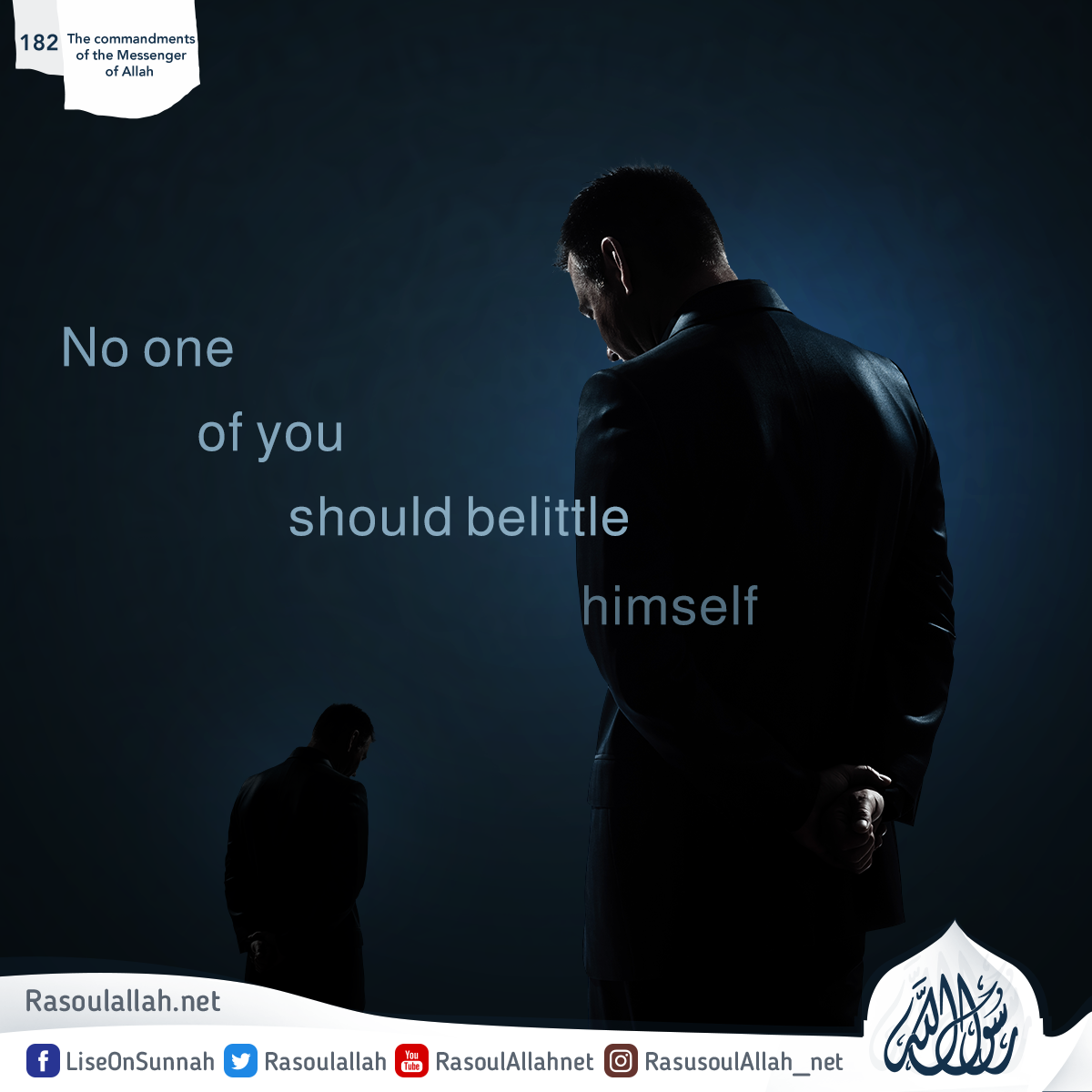No one of you should belittle himself

It was narrated from Abu Sa’eed, may Allah be pleased with him, that the Messenger of Allah ( may the peace and blessings of Allah be upon him ) said:
“No one of you should belittle himself.” They said: “O Messenger of Allah, how could anyone of us belittle himself?” He said: “If he sees something concerning which he should speak out for the sake of Allah but does not say anything. Allah will say to him on the Day of Resurrection: “What prevented you from speaking concerning such and such?” He will say: “Fear of the people.” (Allah) will say: “Rather you should have feared Me.”
Sunan Ibn Majah. Its chain of narrators is weak
When the slave reaches the complete faith, he will not fear anyone except Allah, he submits only to the truth legislated by the Creator, he does not refrain from supporting the truth with the sword or the tongue. He firmly believes in the saying of the Messenger of Allah ( may the peace and blessings of Allah be upon him ) “And remember that if all the people gather to benefit you, they will not be able to benefit you except that which Allah had foreordained (for you); and if all of them gather to do harm to you, they will not be able to afflict you with anything other than that which Allah had pre-destined against you”. [At- Tirmidhi].
The Prophet ( may the peace and blessings of Allah be upon him ) reminds his companions and all the Muslims after them that they are the supporters of the truth, where they were defending it with all their strength. He said: " No one of you should belittle himself." This prohibition may be interpreted in several ways. Therefore, the companions, may Allah be pleased with them asked him for a clear answer
The Prophet ( may the peace and blessings of Allah be upon him ) answered this question, so that the true meaning is to be determined and the other potential meanings, such as humbleness, disappear.
It is taken from this commandment, above what we have said, that the word of truth should be said in its due place and time, in an appropriate manner without fearing the rich or powerful people.
The bitterness of the truth is sweeter than the honey in the sight of the believer because it allows the believer to reap the benefits of this world and the Hereafter, the limit of this goodness is known only to the one who rewards, controls all the matters and on him every believer depends to realize his demands.
One of the elements of power is the honesty of the Muslim. He faces people with an open heart and well-known principles. He does not do anything that undermines his dignity and the dignity of the truth supporters. Rather, he derives his power from the power of the faith that he represents and lives for.
The Muslim who lives for the facts does not trade in falsehoods, he is not in need for that, and his frankness testifies for his wealth of honor, it suffices him from exploitation, and establishes his biography on fixed pillars of virtue and perfection.
The Muslim should give the example of himself and does not let his religion to be degraded. He calls to Allah on the guidance of the Holy Quran, while seeking light from the righteous predecessor and seeking nothing but the contentment of his Lord through the righteous deeds.

